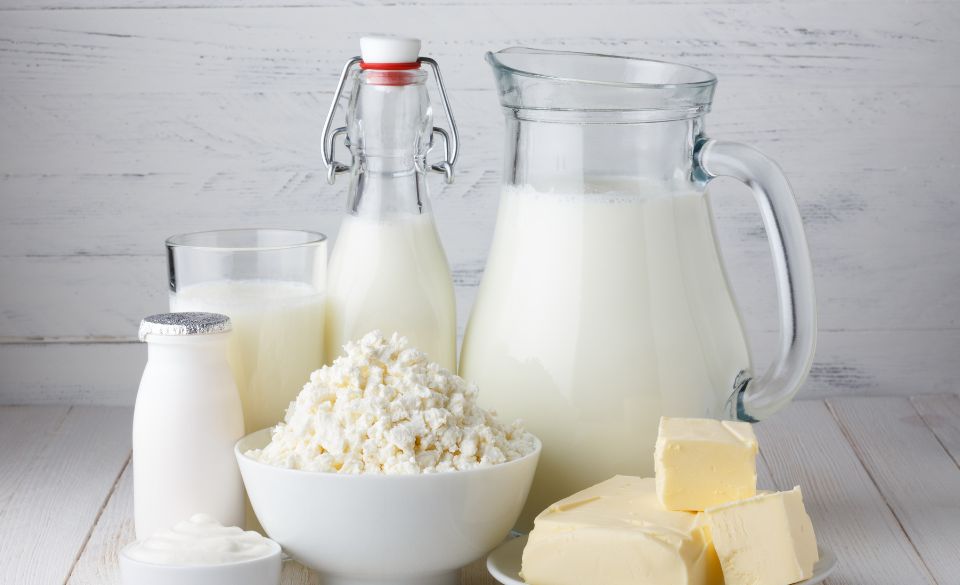
Why Should Runners Avoid Dairy – Everything You Should Know
Page Contents
The Link Between Dairy and Running Performance
When it comes to running performance and nutrition, dairy products typically get a bad rap. Many running experts and athletes suggest that avoiding dairy may be beneficial for optimal running performance. Whether dairy is detrimental to running performance is still up for debate. Nevertheless, there are several reasons why runners may want to avoid dairy.
Possible Side Effects of Dairy Consumption
One of the primary reasons runners are advised to avoid dairy is because of the side effects associated with its consumption. Dairy can be difficult to digest, resulting in gastrointestinal (GI) discomfort such as bloating, cramping, and flatulence. These GI issues can affect performance on the track and make running uncomfortable. In addition to GI issues, consuming dairy can lead to inflammation in the body, which may impair running performance.
A1 vs. A2 Protein: What’s the Difference?
Another reason runners may want to avoid dairy is because of the difference in protein content and type. Most dairy contains a type of protein known as A1 protein, which is thought to cause digestive issues and inflammation. A2 dairy, on the other hand, is thought to be better tolerated by the body and does not cause the same issues as A1 Protein.
If you’ve just been diagnosed with a dairy sensitivity or an intolerance to cow’s milk, then you’ve likely heard about A1 and A2 proteins – two closely related proteins found in cow’s milk. Though they are similar, there are a few key differences that you should be aware of.
First, let’s start with a little background. A1 and A2 proteins are two of the main proteins found in cow’s milk. In fact, up until about 10,000 years ago, all cows produced a form of milk that only contained A2 proteins. However, a genetic mutation occurred, which caused some cows to start producing A1 proteins in their milk. Over time, this mutation spread, leading to what we now know as regular cow’s milk which contains both A1 and A2 proteins.
So what are the differences between A1 and A2 proteins? It all comes down to their chemical structure. A1 proteins have a certain amino acid that A2 proteins do not, and this amino acid is thought to be responsible for some of the adverse reactions that people experience when they consume cow’s milk. For example, scientists believe that this amino acid can irritate the digestive system, leading to issues such as bloating, cramping, or diarrhea.
Luckily, there are now several alternatives on the market that contain only A2 proteins, making them easy to identify. In addition, you can also look for milk specifically labeled as “A2 Milk”, as it typically only contains the A2 proteins.
If you’re looking to avoid any potential adverse reactions when consuming cow’s milk, then it’s important to keep an eye out for A2 proteins. By reading labels carefully and opting for A2 milk or milk substitutes, you can make sure that you’re avoiding the A1 protein.
Dairy Alternatives For Runners
For runners looking for new, exciting ways to fuel their runs, dairy alternatives are a great option. Dairy alternatives for runners are plant-based alternatives to traditional cow’s milk, cheese, and yogurt that still provide the nutrition and hydration they need while they’re out pounding the pavement. Runners can expect to get lots of protein, carbohydrates, magnesium, calcium, and a host of other important nutrients when choosing dairy-free alternatives.
The popularity of non-dairy milk products has been on the rise, with many runners turning to dairy-free solutions for various reasons. A lot of runners have lactose intolerance, or are vegan or vegetarian, which means that cow’s milk is off the table for them. Others may be looking to avoid the hormones and antibiotics associated with cow’s milk. However you look at it, dairy-free milk products are gaining a foothold in the running community.
One of the most popular dairy alternatives for runners is soy milk. Soy milk is a highly nutritious beverage that is naturally lactose-free and packed with protein and other essential nutrients. It’s available in a variety of flavors, and is quite affordable, making it a great option for runners. Soy milk can replace cow’s milk in just about any recipe, including smoothies and desserts, so you can still enjoy all the culinary delights of traditional milk-based dishes.
Almond milk is also a popular choice for runners. It’s a great source of magnesium and other minerals, and has a wow-factor that soy milk doesn’t quite match. Almond milk is naturally lactose-free, and while it has less protein than cow’s milk, it makes up for that by being a great source of healthy fats. Almond milk also comes in several flavors, so it’s easy to find one to suit your taste.
Coconut milk is another option for runners looking for a dairy-free solution. It’s a great source of calcium, potassium, magnesium and other important minerals. Additionally, coconut milk is naturally high in fiber and healthy fats, making it a great addition to smoothies and other recipes.
One other option for runners looking for a dairy-free fix is cashew milk. Cashew milk is naturally sweet, and is a great source of calcium, potassium, and other important vitamins and minerals. It’s a bit higher in fat than other dairy alternatives, but it’s still much healthier than regular cow’s milk. Plus, because it’s naturally creamy, it makes a great addition to recipes like oatmeal, smoothies, and ice cream.
In summation, dairy alternatives should be considered for runners looking for new ways to fuel their runs. Soy, almond, coconut and cashew milk are all great options, as they’re packed with essential vitamins and minerals, low in fat and calories, and generally affordable and easy to find.
Conclusion
Overall, while dairy may not affect all runners in the same way, there are a number of potential side effects associated with dairy consumption, including GI distress and inflammation. For this reason, many runners may choose to avoid dairy in favor of plant-based alternatives. Whether or not runners should avoid dairy is ultimately a personal choice, but understanding the potential side effects will help runners make an informed decision about their nutrition and running performance.


